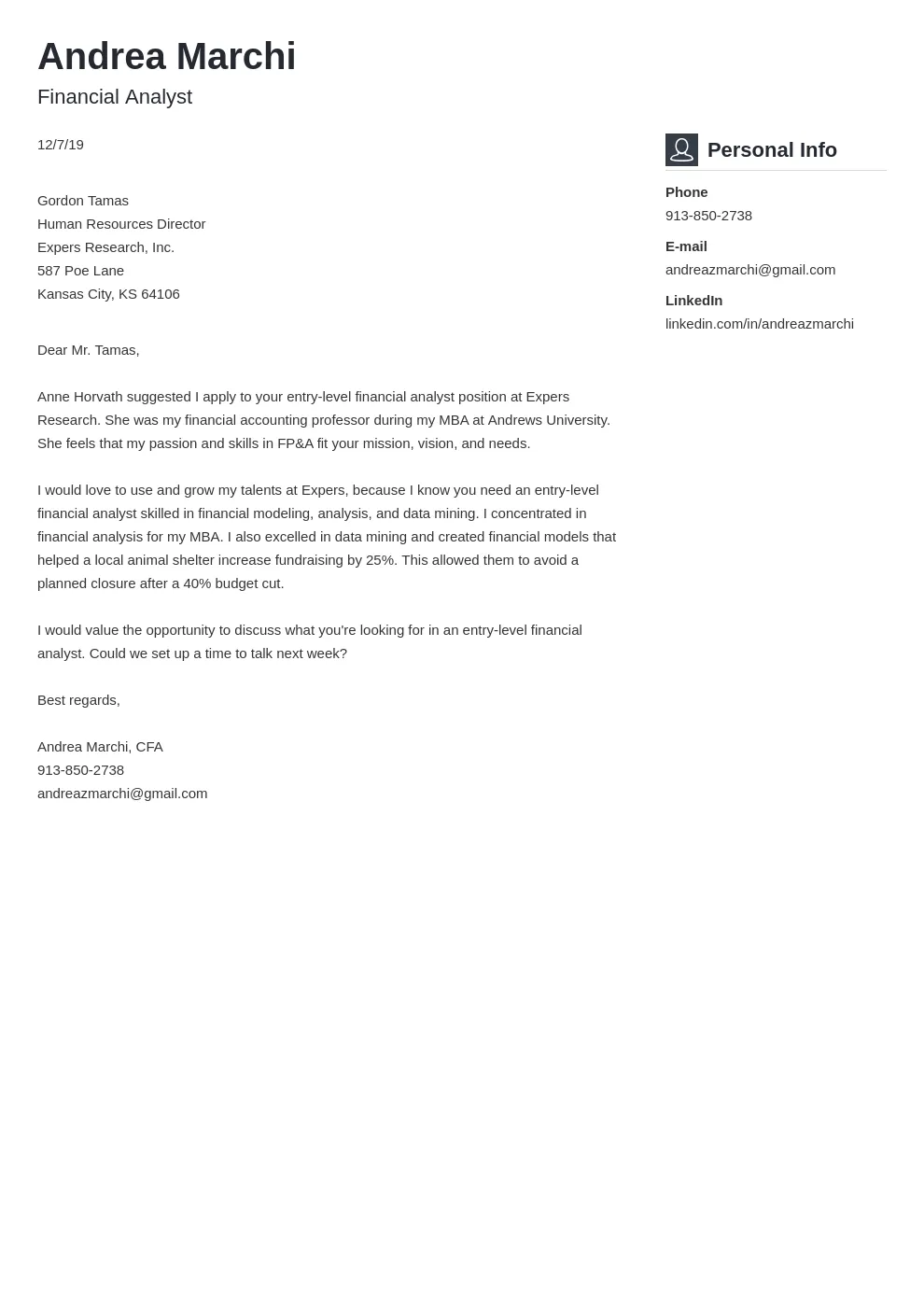Cover Letter Examples Financial Analyst
A well-crafted cover letter is crucial for financial analysts looking to land their dream job. It’s your first impression, a chance to showcase your skills, experience, and passion for finance. But where do you start? This guide provides valuable cover letter examples tailored to different experience levels, alongside essential tips and strategies to help you create a compelling application that grabs the attention of hiring managers. Remember, each cover letter should be customized to the specific job and company, demonstrating your genuine interest and how your qualifications align with their needs. Let’s dive into the world of cover letter examples for financial analysts and equip you with the tools you need to succeed. The following tips, combined with practical examples, will help you stand out in a competitive job market.
Highlighting Your Skills
Your cover letter is the perfect place to spotlight your skills. Think beyond the basic requirements; consider the unique skills that set you apart. Include technical skills like financial modeling, budgeting, forecasting, and proficiency in relevant software (e.g., Excel, SQL, Python). Equally important are soft skills, such as analytical thinking, problem-solving, communication, and teamwork. Don’t just list these skills; provide examples of how you’ve applied them in previous roles or projects. For instance, instead of saying ‘Proficient in financial modeling,’ you might write, ‘Developed complex financial models in Excel to analyze investment opportunities, resulting in a 15% improvement in forecasting accuracy.’ This specificity adds credibility and demonstrates your capabilities. Always align your skills with the job description, ensuring you emphasize the qualifications most relevant to the role.
Quantifying Achievements
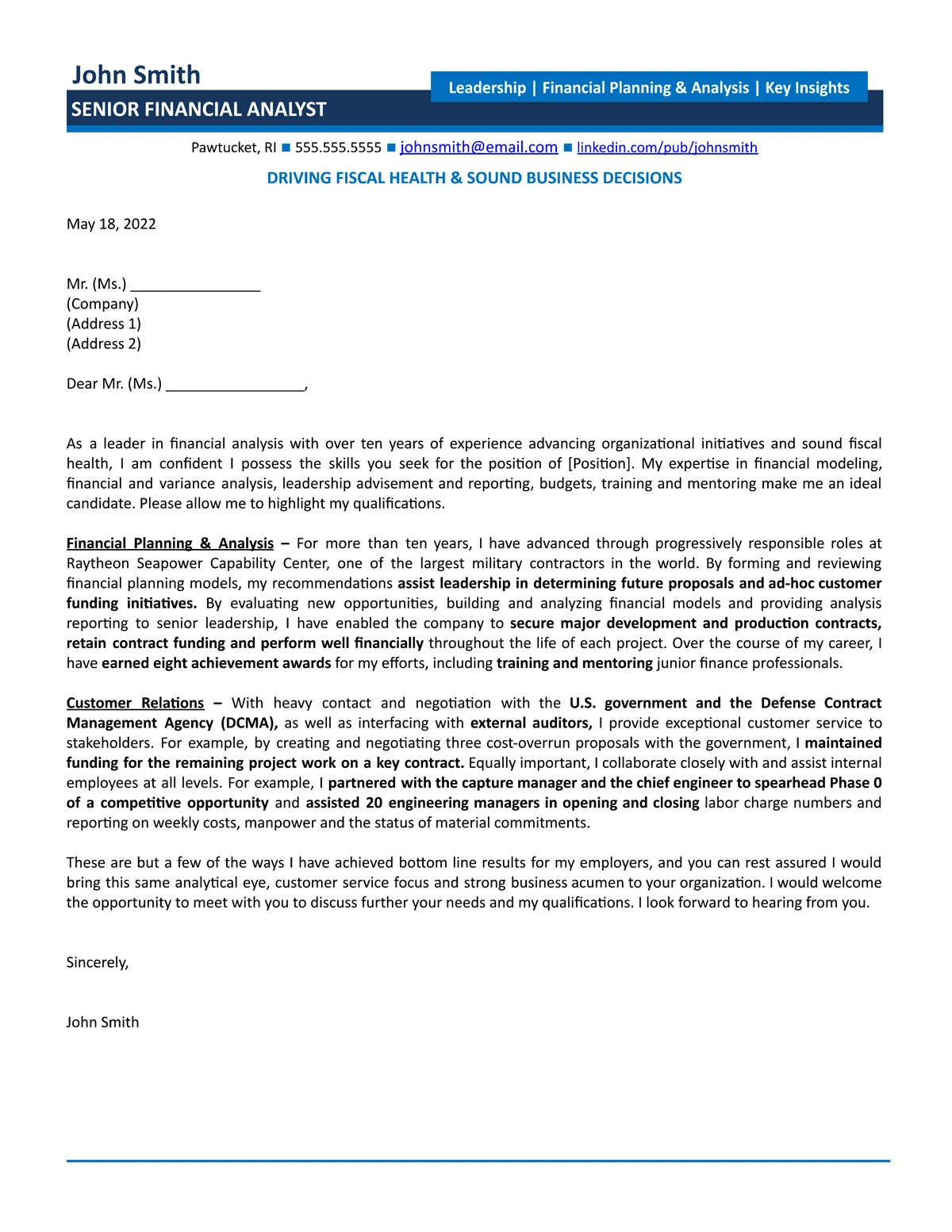
Numbers speak louder than words, especially in finance. Quantify your achievements whenever possible. Use metrics, percentages, and specific data points to illustrate your impact. For example, instead of saying ‘Improved efficiency,’ state ‘Streamlined the budgeting process, reducing the time required by 20%.’ Quantifying your accomplishments provides concrete evidence of your contributions and demonstrates your ability to deliver results. Think about past projects where you saved the company money, increased revenue, improved efficiency, or mitigated risks. Use action verbs to describe your accomplishments and focus on the impact you made. This makes your cover letter more persuasive and memorable.
Showcasing Relevant Experience
The experience section of your cover letter should align directly with the job requirements. Even if you’re changing careers, find transferable skills that relate to the target role. When describing your experience, focus on the responsibilities and projects that are most relevant to the position you’re applying for. Use the job description as your guide, and highlight the skills and experiences that match the employer’s needs. If you have worked on similar projects, be sure to include details about your role, the challenges you faced, and the outcomes you achieved. If you are a recent graduate or have limited experience, focus on internships, projects, or coursework that demonstrate your potential and passion for finance.
Demonstrating Financial Acumen
Financial analysts need to demonstrate a strong understanding of financial concepts and principles. In your cover letter, showcase your financial acumen by providing examples of your analytical skills, your understanding of financial statements, and your ability to make sound financial decisions. Describe situations where you used your knowledge to analyze data, identify trends, or make recommendations. Consider mentioning specific financial ratios you’re familiar with, or any certifications or licenses you hold, such as a CFA (Chartered Financial Analyst) or CPA (Certified Public Accountant). Showcasing this expertise enhances your credibility and demonstrates your ability to perform the duties of a financial analyst effectively. Your goal is to convince the hiring manager that you can think critically and make informed judgments based on financial information.
Tailoring to the Job Description
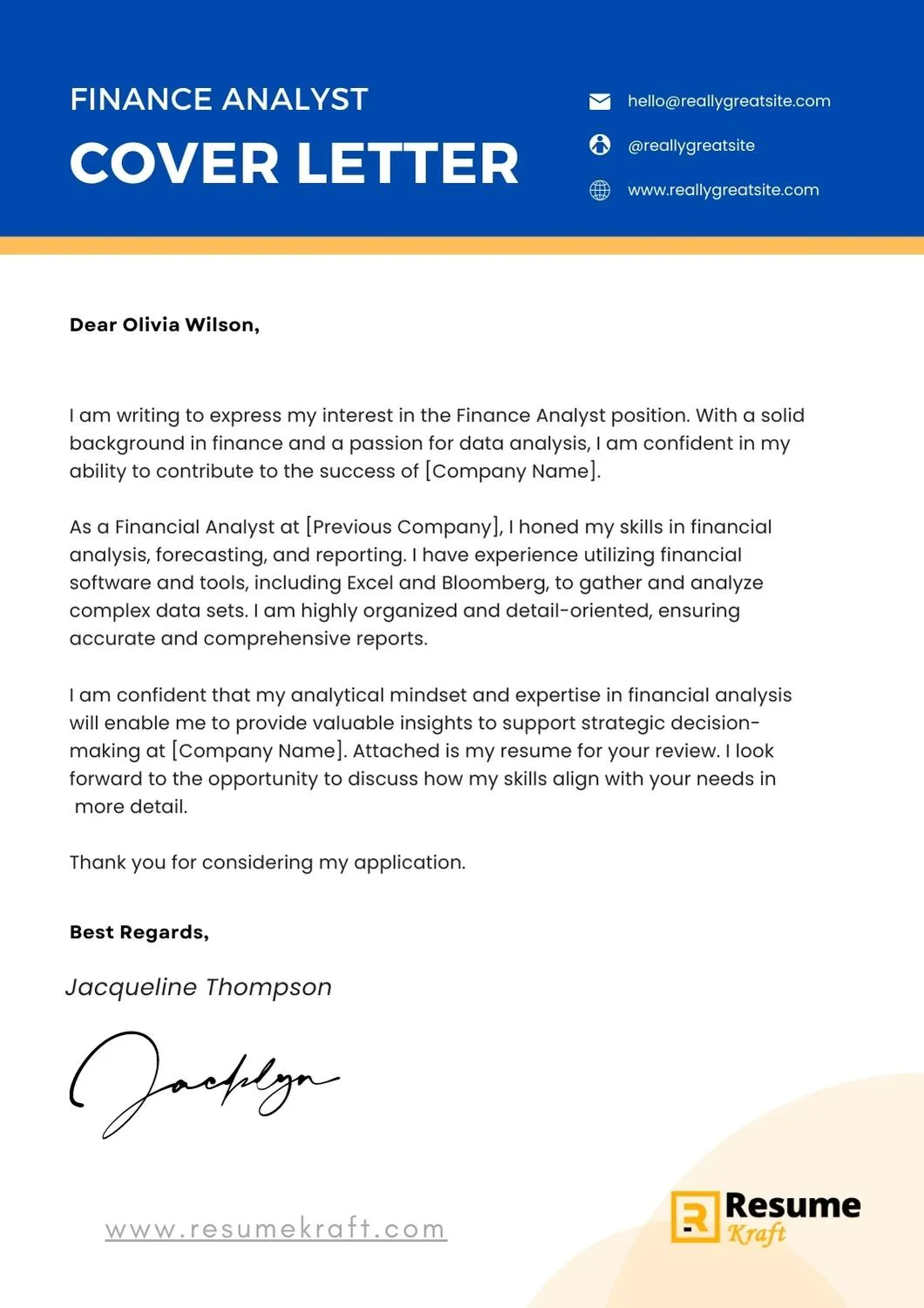
One of the most important aspects of a successful cover letter is tailoring it to the specific job description. Generic cover letters are easily spotted and often disregarded. Before you start writing, carefully read the job description and identify the key skills, experience, and qualifications the employer is seeking. Use the job description as a guide, and highlight how your qualifications align with their needs. Customize your cover letter by using keywords from the job description, mentioning the company by name, and referencing any specific projects or initiatives that resonate with the role. This level of personalization demonstrates your genuine interest and commitment to the position, and it significantly increases your chances of getting an interview.
Cover Letter Examples Financial Analyst
Example 1 Recent Graduate
For recent graduates, a cover letter is an opportunity to highlight academic achievements, relevant coursework, internships, and any projects that showcase your skills. Since you may have limited professional experience, emphasize your passion for finance, your analytical abilities, and your willingness to learn. This should contain details on educational qualifications, academic projects, and any financial clubs or societies you’ve been involved in. Don’t hesitate to mention any volunteer work or extracurricular activities that demonstrate your commitment to the field or your strong work ethic. Tailor your letter to the specific role you are applying for by highlighting the skills and experiences that align with the job description. Remember, your cover letter is your chance to create a strong first impression and convince the hiring manager that you have the potential to succeed.
Key Skills for Recent Graduates
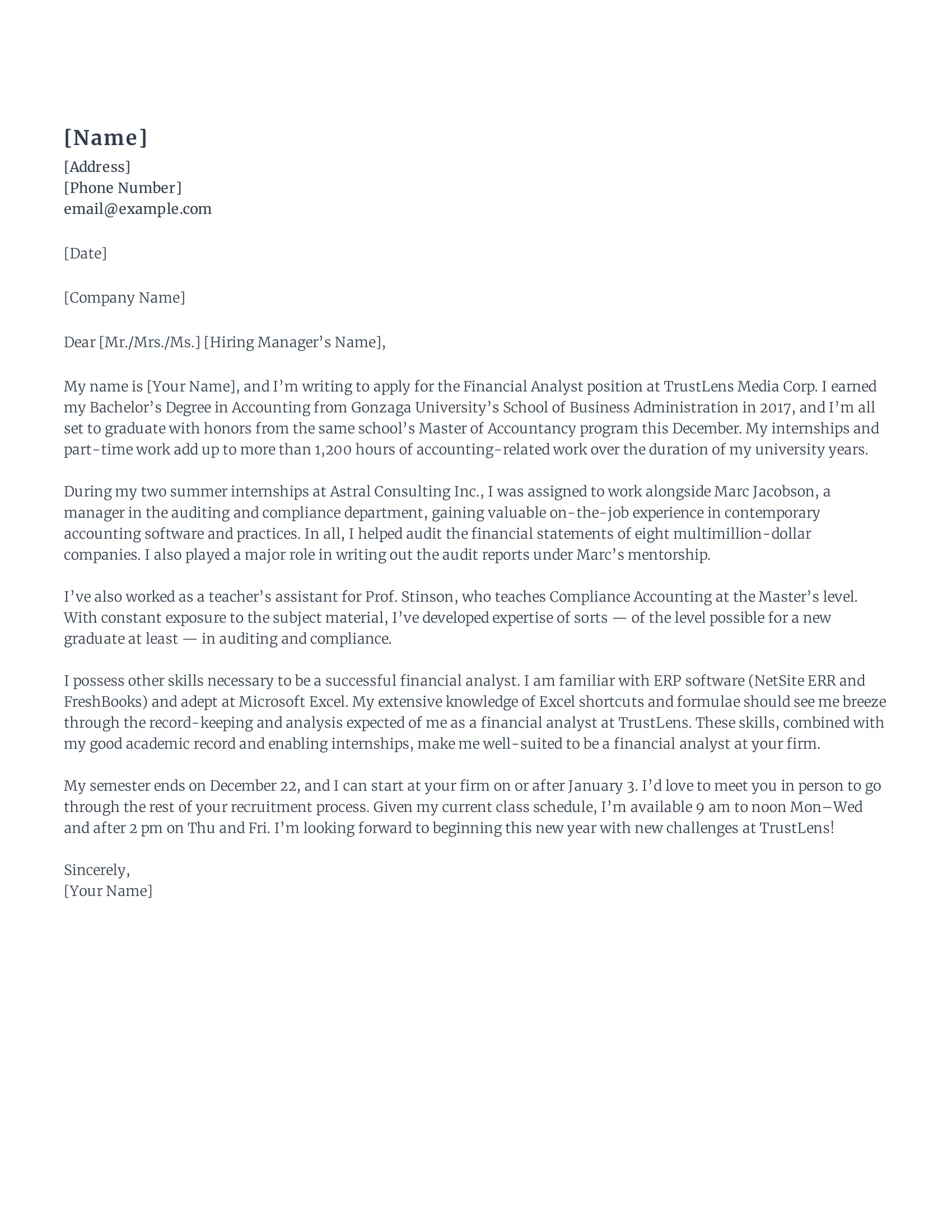
- Financial Modeling
- Data Analysis
- Excel Proficiency
- Understanding of Financial Statements
- Communication Skills
Example 2 Experienced Professional
For experienced financial analysts, a cover letter is an opportunity to showcase your career accomplishments, leadership skills, and expertise. Highlight your previous roles, the projects you’ve managed, and the impact you’ve made on your previous employers. Quantify your achievements by using metrics and data points to demonstrate your success. This example should focus on specific financial projects, and leadership roles. Emphasize any management experience you have and demonstrate your ability to collaborate with teams and drive results. Furthermore, it should demonstrate how your skills and experience align with the job description. By presenting a concise and compelling narrative of your professional journey, you can set yourself apart and increase your chances of landing your desired financial analyst position.
Key Skills for Experienced Professionals
- Financial Planning
- Budgeting
- Forecasting
- Risk Management
- Strategic Analysis
Example 3 Career Changer
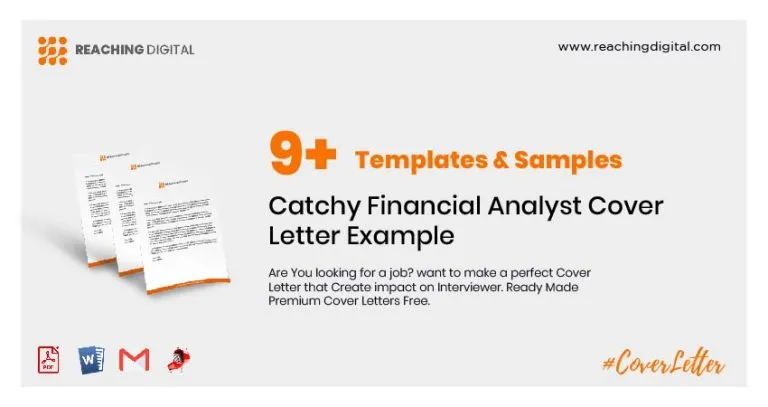
If you’re changing careers, your cover letter should highlight transferable skills and experiences that are relevant to the financial analyst role. Identify the skills and knowledge from your previous roles that align with the job description. Explain why you’re making the career change and what motivates you to pursue a career in finance. Detail the skills and accomplishments that translate effectively. Include any professional development, such as relevant courses or certifications. Focus on your passion for finance and your willingness to learn and adapt. By showing your eagerness to transition, you can convince the hiring manager that you have what it takes to succeed in the field. Your cover letter should focus on connecting your past experiences to the requirements of the financial analyst role.
Key Skills for Career Changers
- Analytical Skills
- Problem Solving
- Communication
- Adaptability
- Attention to Detail
Formatting and Structure Tips
Formatting and structure can significantly impact your cover letter. Use a professional and easy-to-read font, such as Times New Roman or Arial, in a standard size (11 or 12 points). Keep your cover letter concise, ideally one page in length. Use clear headings, bullet points, and paragraphs to organize your content and make it easy to scan. Begin with a strong opening that grabs the reader’s attention. The body of your cover letter should highlight your skills and experiences, using specific examples to support your claims. Finally, end with a call to action, expressing your interest in the role and your availability for an interview. Proper formatting and structure make your letter more professional and reader-friendly.
Proofreading and Editing
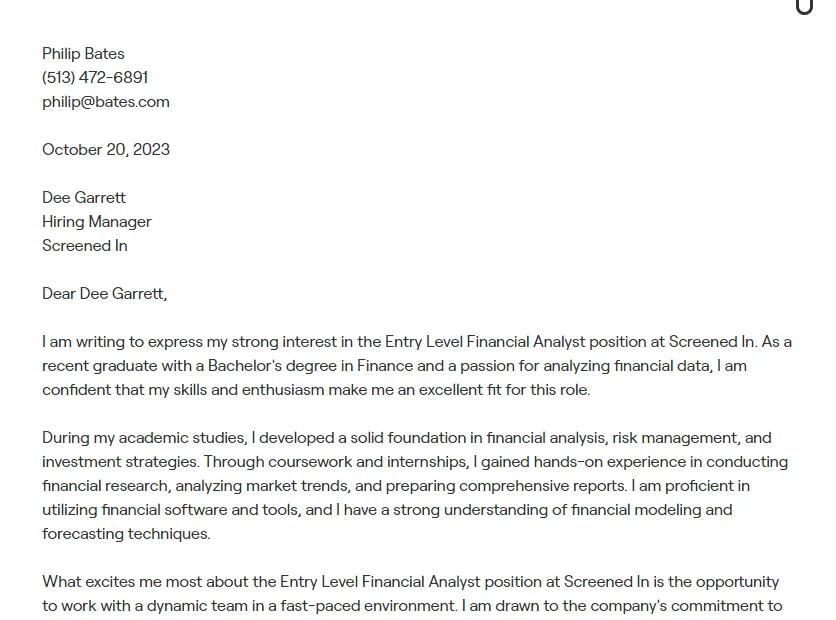
Proofreading and editing are crucial steps in the cover letter writing process. Typos, grammatical errors, and inconsistencies can undermine your credibility and make a negative impression on the hiring manager. Before submitting your cover letter, carefully proofread it multiple times. Use spell check and grammar check tools to catch any obvious errors. It can be helpful to have a friend, family member, or career counselor review your cover letter. They can provide an objective perspective and catch errors that you might have missed. Make sure your cover letter is free of errors, well-organized, and polished, which enhances your professionalism and increases your chances of securing an interview.
Contact Information and Salutation
Include your contact information at the top of your cover letter. This should include your name, phone number, email address, and LinkedIn profile URL (if you have one). Use a professional email address. Address the hiring manager by name if possible. Research the company and the hiring manager to find the appropriate contact information. If you can’t find the hiring manager’s name, use a generic salutation like ‘Dear Hiring Manager.’ A well-written salutation and clear contact information demonstrate your professionalism and make it easier for the hiring manager to reach you.
Conclusion
A well-crafted cover letter can significantly increase your chances of landing a financial analyst position. By following these tips, you can create a compelling cover letter that showcases your skills, experience, and passion for finance. Remember to tailor your cover letter to each job description, highlight your accomplishments, and proofread carefully before submitting your application. By combining these strategies, you’ll be well on your way to securing your dream job. Good luck with your job search!
